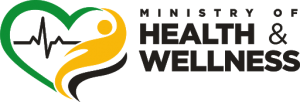1. What is TB?
Tuberculosis (TB) is a disease caused by bacteria that are spread from person to person through the air. TB usually affects the lungs, but it can also affect other parts of the body, such as the brain, the kidneys, or the spine. A person with TB can die if they do not get treatment.
2. Does TB still occur in Jamaica?
TB disease still exists in Jamaica. Jamaica is low burden TB country with an incidence of <10 cases per 100,000 population per year.
3. What are the Symptoms of TB?
The general symptoms of TB disease include cough for greater than 2 weeks, weight loss, fever, and night sweats. Symptoms of TB disease in other parts of the body depend on the area affected.
4. How is TB Spread?
TB germs are put into the air when a person with TB disease of the lungs or throat coughs, sneezes, speaks, or sings. These germs can stay in the air for several hours, depending on the environment. Persons who breathe in the air containing these TB germs can become infected; this is called latent TB infection.
5. What Should I Do if I Have Been Exposed to Someone with TB Disease?
People with TB disease are most likely to spread the germs to people they spend time with every day, such as family members or coworkers. If you have been around someone who has TB disease, you should go to your doctor or your local health department for tests.
6. How do you get Tested for TB?
The Mantoux tuberculin skin test is performed by injecting a small amount of fluid (called tuberculin) into the skin in the lower part of the arm. A person given the tuberculin skin test must return within 48 to 72 hours to have a trained health care worker look for a reaction on the arm.
7. How is TB Disease Treated?
TB disease can be treated by a combination of several drugs for at least 6 months. In Jamaica, these drugs are provided free of cost. It is very important that people who have TB disease finish the medicine, and take the drugs exactly as prescribed. If they stop taking the drugs too soon, they can become sick again; if they do not take the drugs correctly, the germs that are still alive may become resistant to those drugs. TB that is resistant to drugs is harder and more expensive to treat and has a longer treatment course.
8. What is Bacille Calmette–Guèrin (BCG)?
BCG is a vaccine for TB disease.
